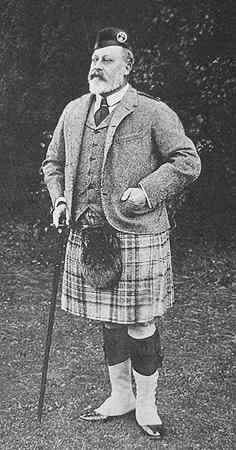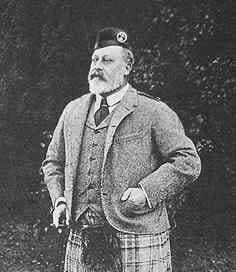Hitler's Diaries are Fake (and so is your kilt)
ANNETTE TELLS TALES An English historian spectacularly deep-sixed his public reputation. He also had something very important to say about identity.
How Long is This Post? Whole Thing: 6,500 words. About 30 min read. Free Readers’ section: About 5 minutes.

The Hitler Diaries Trainwreck and Hugh Trevor-Roper
I try to avoid malicious feelings as a rule, but it was impossible for me not to have a moment of schadenfreude in 1983.
Wait, Laing, a moment of what?
Yes! Schadenfreude! Ooh! Great word with which to scare people! Historians love it. Schadenfreude (pronounced shah-den-froy-duh, with each syllable emphasized the same). It’s German, and there’s no equivalent in English. It means taking pleasure in someone else’s misfortune.
Try it on your family! Remember Uncle Bill was so nasty to Aunt Kim during the divorce? She just won the lottery big time, and he won't get a penny of it! Ooh, I feel a touch of schadenfreude coming on.
Schadenfreude. That’s what this first story concerns. Only, in this case, the schadenfreude is mine.
I was still in my teens. But I remember. In 1982, Stern, a magazine in Germany, quietly bought the rights to publish sixty newly-discovered volumes of Adolf Hitler’s alleged Diaries. Before handing over the millions of dollars that the Diaries’ owners demanded, Stern wisely decided to make sure they were the real deal. The owners provided one single solitary page from the diaries to forensics experts Stern had hired. None of these forensics guys were experts on the Nazis. One couldn’t read German. But they decided the handwriting was indeed Hitler’s.
Yes, I think you can see where this is headed.
The first actual historian allowed a peek at the Diaries was Oxford University’s Hugh Trevor-Roper (aka Lord Dacre). Not surprisingly, Trevor-Roper/Dacre was skeptical. And his German wasn't that great, either. But Stern reassured him that forensics experts were convinced the Diaries were pre-war.
No such tests had taken place.
Trevor-Roper was also, quite honestly, dazzled by the sheer volume of manuscripts. As he said later,
Who, I asked myself, would forge sixty volumes when six would have served his purpose?
Not a bad question. Alas, it also demonstrates the problem of “thinking for yourself” without solidly basing your thoughts on evidence. Look, even historians make mistakes.
So Trevor-Roper endorsed the Diaries as the legit work of Hitler. Stern announced its plans to publish them in Germany, and to sell the serialization rights to newspapers around the world.
Even as historians were muttering uneasily that the Diaries seemed too good to be true, negotiations began. Rupert Murdoch, today owner of Fox News, was already publisher of The Times (London). He bought the rights for the UK, the US, and Australia.
Murdoch planned to publish the Diaries in The Sunday Times. This Sunday edition of The Times is a separate newspaper. By this time, Hugh Trevor-Roper/Lord Dacre had had major second thoughts about the Hitler Diaries. He told the editor of The Times about his concerns, assuming he would pass this news to The Sunday Times editor. The Times editor assumed that Trevor-Roper would tell him himself.
Again, I think you can see where this is going.
The night before publication, with newspapers already rolling off the presses, the editor of The Sunday Times called Trevor-Roper to ask him to write an article disputing claims that the Hitler Diaries were fake.
To his shock, Trevor-Roper refused, explaining that he, too, had doubts about the diaries. The Sunday Times’s editors called publisher Rupert Murdoch to ask if they should stop the presses.
Murdoch’s response? “Fuck Dacre. Publish.”
They published. And within a month, the so-called Hitler Diaries were revealed to be forgeries, and not even good forgeries. I mean, I guess it’s possible that Hitler could have written about farting, and Eva Braun telling him he had bad breath, but shouldn’t these little asides have set off a few distant alarm bells?
Whole books have been written about the Hitler Diaries disaster. Trevor-Roper, it was decided by someone, had lost his reputation, and was destroyed as a historian. British satirical magazine Private Eye gave him a nickname: Hugh Very-Ropey (Lord Lucre of Claptout), which I will translate for my US readers as Hugh Very-Inferior (Lord Money of Past-It). Private Eye nicknaming you like this was as close as cancellation got in 1983.
And schadenfreude? Teenage Annette Laing, still at school in the lowly wilds of nearby Hertfordshire, was watching the news about the unmasking of the Hitler Diaries with malicious pleasure. Why?
The only thing I knew about Hugh Trevor-Roper before his disgrace was that he hated Scottish people. It was my Dad who tipped me off about him.
As if it weren’t enough of a challenge to grow up Scottish in a southern English town! Most of the time, I was not so much offended by the way English people thought of us, as confused. I simply couldn't connect my beloved Scotland with this mythical place full of stingy, gloomy, drunk people that English people imagined. Or with the idea that we all wore kilts and played bagpipes. And sometimes English people really did say nasty things. My favorite? “Bloody Scottish gits.” I thought we were kind, lively, honest, funny, modern, and normal. I liked us.
What had we done wrong?
Hugh Trevor-Roper once said out loud that he didn’t like Scots much. He also insisted in calling us “Scotch”, knowing this offended us. Scotch eggs? Fine. Scotch whisky? Of course. Scotch applied to some other things by my granny’s generation? Okay. But Scotch meaning people? No. And Hugh Trevor -Roper wasn’t calling us Scotch because he didn’t realize it was offensive. It was a deliberate, calculated insult.
So when the Hitler Diary thing happened: Schadenfreude. You bet.
Why, then, am I sharing Trevor-Roper’s work with you today, an essay about Scottish history, that first appeared in the same year as his downfall?
Because it’s great. When I read it in grad school, nearly ten years after it appeared, it blew my mind. It convinced me I had made absolutely the right decision to drop my long-held plans to become a journalist, and enter a PhD program in history.



